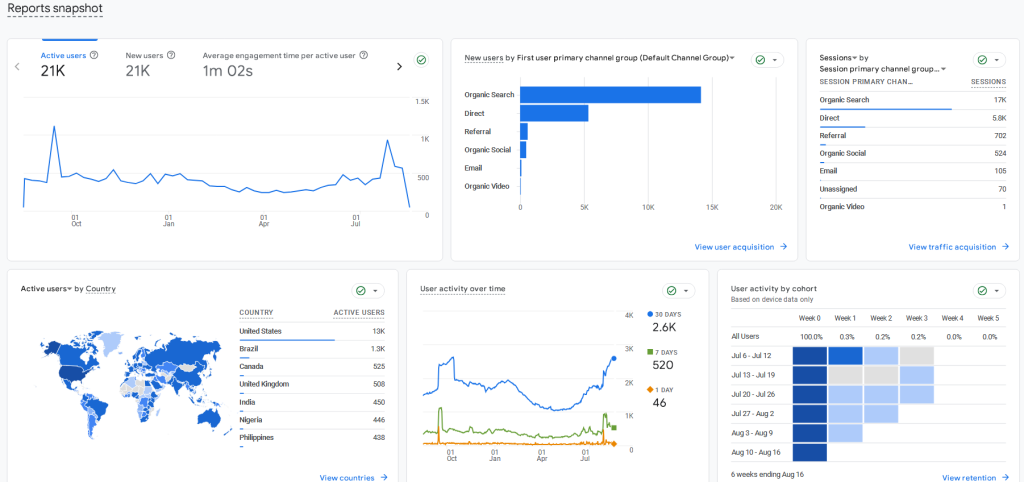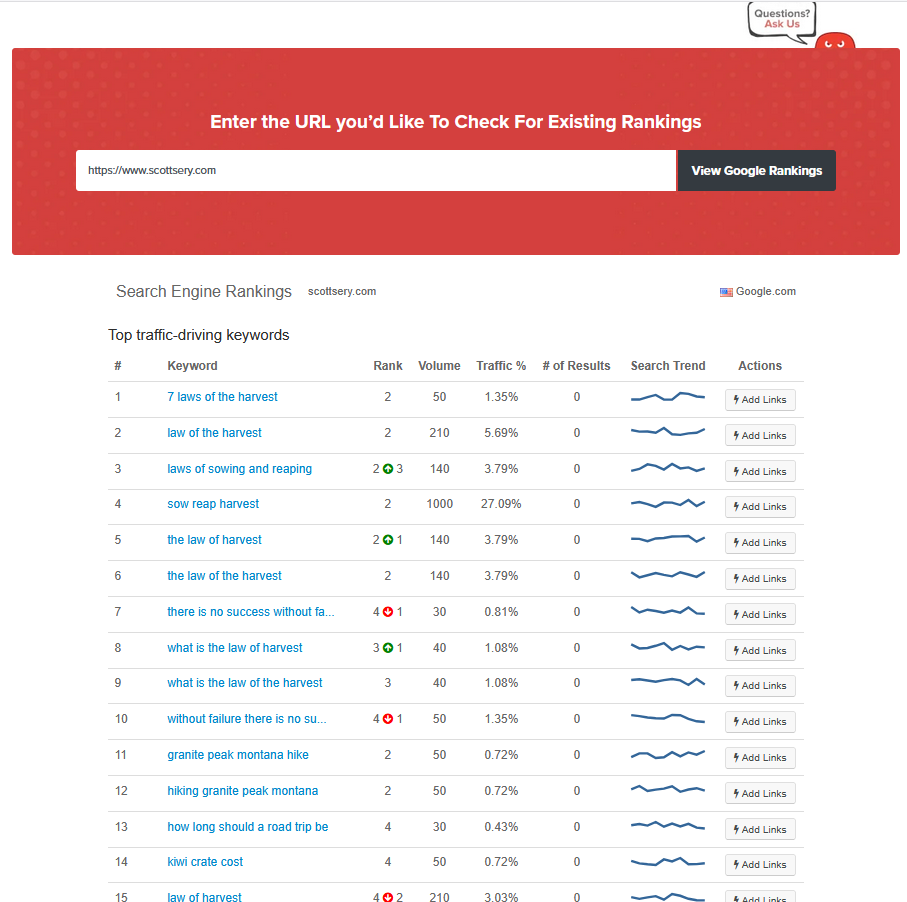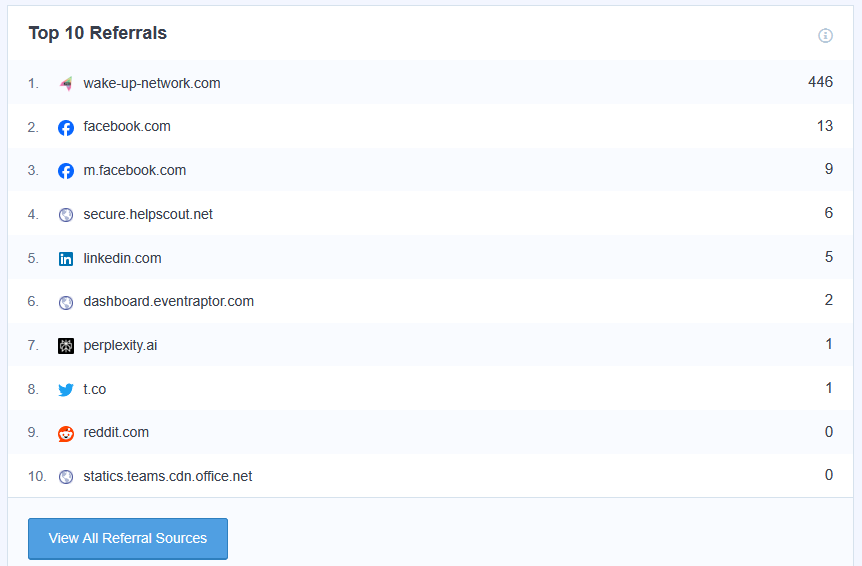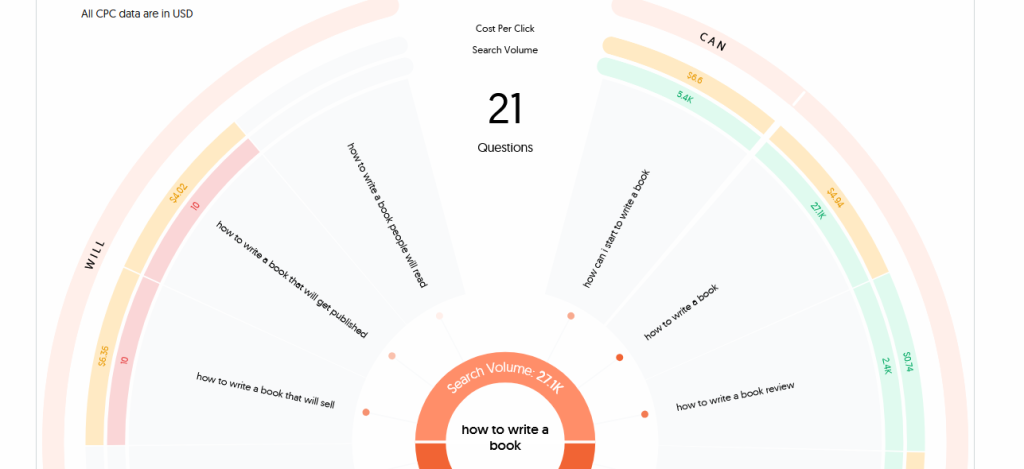
How to View Your Traffic Analytics and Target the Right Audience
Over the years, there have been so many cries about how SEO is dead. But the traffic analytics to your site should show that search engines continue to drive more traffic to your website than any other source. For my own, search engines first, direct, referral, then social (referral could be coming from AI).
Now that ChatGPT 5 is out, there’s another cry – SEO is dead! The so-called experts are saying you need to optimize for AI, so AI can reference you as the authority, and your links show up in ChatGPT when people posit queries.
In reality, you can do both. Why only capture the search engines and not the AI? While AI is gaining traction, search engines remain the driver. Knowing how to view your traffic analytics will help you know what people are actually looking for.
Review Your Analytics and Traffic
There are a few things you’ll want to know when looking at your traffic analytics.
Amount of Traffic – This is pretty easy to find. Your analytics will tell you, or just about any of the free SEO reports that you can find online will show you how many people are visiting your site.

What they Search – A little harder is what your visitors are searching. Some of this is built into Google Analytics, but for a company that is focused on making searches user friendly, that program certainly is not user friendly. The Hoth has a good report that shows how people are finding your most popular pages.

Where they’re From – Not so much as physical location (although if you’re a local business and all your traffic is from outside the country, then you have a problem there). Instead, you want to know your referral sources. Is it search engines, social media, other sites, or something else entirely?

This is your baseline. Knowing this information is what’s going to help you know what keywords and phrases you should be targeting, and what people are already targeting.
Know Your Competition and Their Traffic
Knowing your own traffic analytics is one thing, but how does that compare to the competition that you want to bump out of that coveted first spot on Google? There are entire sub-niches of SEO dedicated to this.
SpyFu has a great page that’s easy to use and for most of what you’d need it’s free to use. You can type in your competition’s website and it breaks it down for you on how much traffic they get, who their competition is, and their top 5 ranking keywords.
For example, when I search on Google, “How to write a book” there are a bunch of ads, but the number on ranking site is Jennarainey.com. Reviewing that site, it’s not exactly a competitor, but she has a high-ranking blog about how to write a book and the process it takes. You can see the full report if you download it, or just click this attached PDF.
Using SpyFu and The Hoth, you can type in your competitors (or even find your competitors) and figure out some of the details behind how they’re ranking. Then, it’s a matter of knowing what keywords to weave into your writing.
Find Out What People are Looking For
It’s easy to rank highly when there’s not much competition for your keywords. What you really want to focus on, though, is what people are actually looking for.
You should have a rough idea of what your best keywords are. Then, head over to Answer the Public, and find out what people are asking. So, I plug in “how to write a book” and this site will help me figure out the phrases people are searching for, and how many people are looking for them.
You can see in this portion of a screenshot that those exact keywords are searched 27,000 times per month, but then it gives a lot of variations and how I can target similar, but slightly different phrases.

Incorporate All That Traffic Analytics Together
So, you have your own traffic analytics and a good feel for that data. You know your competition and how they’re ranking. You can see what people are actually looking for.
It’s merely a matter of putting it all together.
Years ago, I wrote about how I moved from page 7 to page 1 on Google for writer in Billings, Montana. It’s not a very popular keyword phrase, but it was a proof of concept. Google algorithms have changed a bit, but it’s important to remember that content will always be the best way to help with your SEO.
Now I know what keywords my competition ranks for, I can see that I’m ranking for a lot of stuff that I’m passionate about, but not what’s going to make me money. And, I know what to target so I can move up the ranks.
Are you struggling with your writing? Perhaps you’re not ranking well for what you want to rank well for. Let’s have a conversation, a free 30-minute discovery call, and come up with a plan to help you more effectively spread the message.
